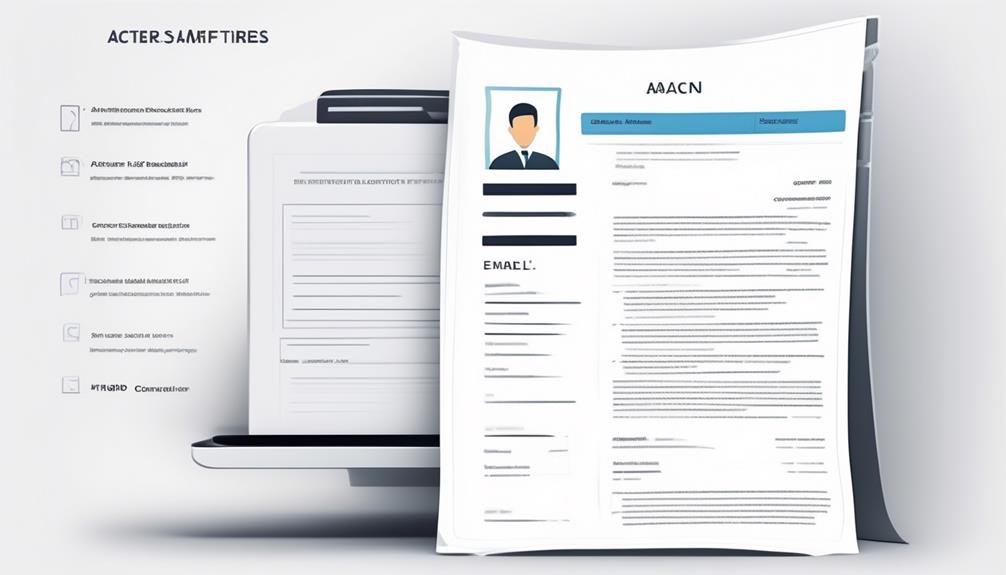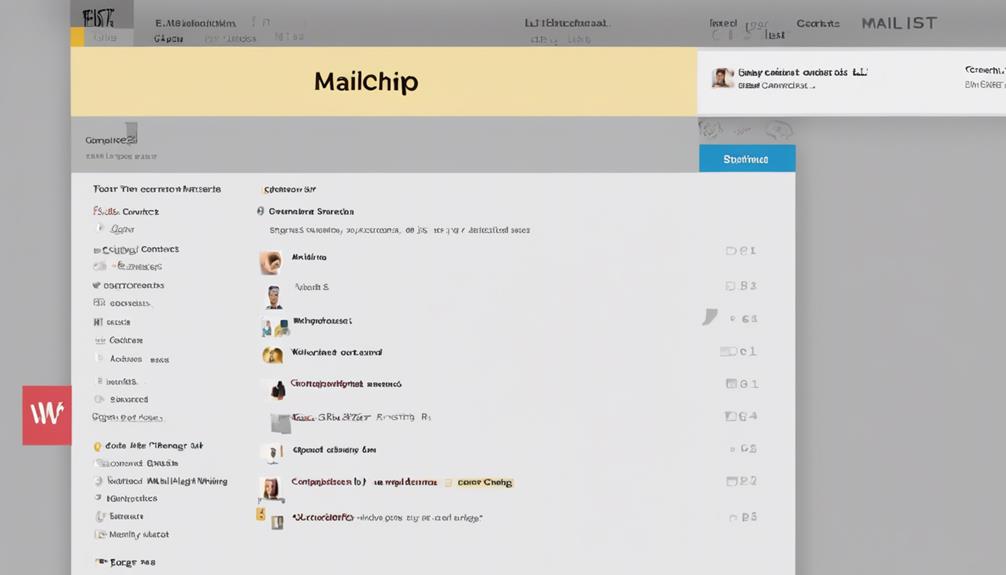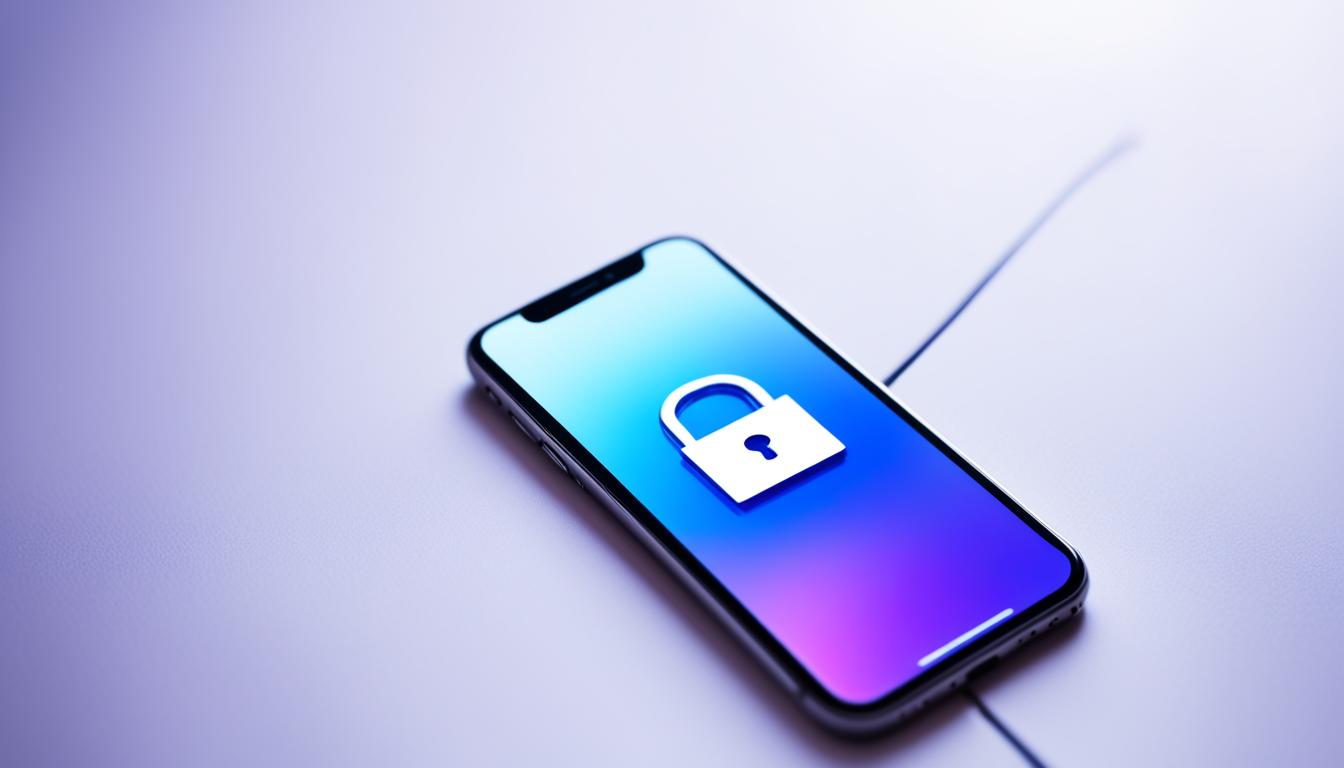When reaching out to a potential employer, it’s vital to strike the right tone from the beginning. Think about crafting an email that not only highlights your qualifications but also meets the expectations of the recruiter.
As we navigate the nuances of professional communication, our approach can significantly impact the outcome of our job applications. Join us as we explore the intricacies of composing emails to employers that leave a lasting impression and pave the way for career success.
Key Takeaways
- Personalize subject line with recipient's name for professional touch.
- Use formal language and proper grammar to address employer appropriately.
- Showcase value proposition with relevant experience and key achievements.
- Follow up politely to demonstrate interest and maintain professional communication.
Writing a Professional Subject Line
Crafting a professional subject line is crucial when composing an email to an employer, as it sets the tone and conveys the purpose effectively. When addressing the hiring manager or the potential employer, including the recipient's name in the subject line adds a personalized touch to the email. A subject line such as 'John Doe – Application for Marketing Coordinator Position' is clear and specific, indicating the purpose of the email right away.
Using a professional tone in the subject line is essential to make a good first impression. Avoid using informal language or emojis in this section. It's also important to keep the subject line concise and to the point, summarizing the main content of the email. For example, a subject line like 'Re: Marketing Coordinator Application' is direct and relevant.
In a professional email, the subject line acts as the initial point of contact with the employer. Therefore, it should be crafted thoughtfully to grab the recipient's attention and highlight the email's purpose effectively.
Addressing the Employer Appropriately

When addressing the employer appropriately in an email, it's important to maintain a professional tone and address the recipient using their proper title and last name, unless instructed otherwise.
Maintain Professionalism: Use formal language and address the employer with their appropriate title and last name.
Subject Line Clarity: Clearly state the purpose of your email in the subject line to grab the employer's attention.
Formal Salutation: Begin the email with a polite greeting such as 'Dear Mr./Ms. [Last Name]' to show respect.
Grammar and Punctuation: Ensure proper grammar, spelling, and punctuation are used throughout the email to convey professionalism.
In your job application email, it's crucial to address the employer professionally to make a positive impression. Include relevant details such as your job role, skills, and experience to showcase your qualifications effectively. Additionally, provide your contact details and possibly a link to your LinkedIn profile for further reference. End the email with a professional signature to leave a lasting impression on the recipient.
Showcasing Your Value Proposition
Upon addressing the employer appropriately in an email with formal language and proper salutations, the next crucial step is showcasing our unique value proposition to demonstrate how we can contribute effectively to the company's needs.
To capture potential employers' attention, our emails to potential employers should clearly state our value proposition. Make your point by highlighting your years of experience and key achievements that make you a good fit for the company. Providing specific examples of how your skills align with the desired role at (company name) is a good idea.
Additionally, offering to share more about your background and accomplishments can be done by attaching your resume or providing additional information. By customizing each email to emphasize how your unique value proposition can benefit the employer, you increase the chances of standing out and securing the desired opportunity.
Attaching Essential Documents

In preparing to send an email to a potential employer, we should ensure to attach essential documents like resumes, cover letters, and portfolios. When emailing a prospective employer, it's crucial to provide all necessary information in one go. Here are key points to consider when attaching essential documents:
- Clear Subject Line: Use a clear and concise subject line that indicates the purpose of your email, such as 'Application for Marketing Manager Position – [Your Name].'
- Addressing the Email: Personalize the email by addressing the hiring manager or recruiter by their name. This shows professionalism and attention to detail.
- Using a Professional Tone: Maintain a professional tone throughout the email, including the body text where you highlight your qualifications and relevant experience.
- Follow-Up: If you don't receive a response within a reasonable timeframe, consider sending a polite follow-up email to inquire about the status of your application.
Can I Use the Same Professional Email Format for Cancelling a Position as I Would for Writing to My Employer?
When cancelling a professional position, it’s important to use a proper format. The professional position cancellation email template can be used in this situation, just as it would be when communicating with an employer. It ensures a respectful and clear message is conveyed.
Proper Sign-Off and Follow-Up
We recommend concluding your email with a courteous sign-off and expressing gratitude for the employer's time and consideration. It is essential to maintain a professional tone throughout your communication, especially in the final part of your email. Some suitable sign-offs include 'Sincerely' or 'Best regards.' Expressing thanks shows appreciation for the recipient's time and consideration of your application. Following up after sending your initial email is crucial. It demonstrates your interest in the position and keeps you on the employer's radar. Remember to be persistent but not pushy, as you want to maintain a positive impression.
—
| Email Sign-Offs | Example |
|---|---|
| Sincerely | Dear Mr. Smith, Sincerely, [Your Name] |
| Best regards | Hello [Employer's Name], Best regards, [Your Name] |
| Regards | Hi [Employer's Name], Regards, [Your Name] |
—
In your follow-up email, briefly restate your interest in the position and inquire about the next steps in the hiring process. Ensure your email address is professional and easy to identify. Use this opportunity to express your enthusiasm about the job offer and your readiness to contribute to the company. Be prepared to discuss your cover letter, any additional documents, and your availability for the first day on the job.
Frequently Asked Questions
How Do You Start an Email to an Employer?
When starting an email to an employer, we recommend beginning with a polite greeting and addressing the recipient by name if possible. Clearly state the purpose of your email in the opening paragraph to grab their attention.
Customize each email for the specific employer, emphasizing your relevant skills.
How Do I Write a Professional Email to My Boss?
When writing a professional email to my boss, we should consider using a respectful tone and clear communication.
Start with a captivating allegory to grab attention.
Be concise, formal, and polite throughout the message.
Address the boss by name and state the purpose clearly.
Emphasize our qualifications and relevant experiences.
Lastly, proofread for errors and include any necessary attachments before hitting send.
How Do You Write an Email to a Potential Employer Example?
When crafting an email to a potential employer, we aim to captivate their interest by customizing the subject line and mentioning the position we desire.
Maintaining a professional yet friendly tone, we clearly convey our purpose for reaching out and express our interest in the company.
By highlighting our relevant skills, experiences, and achievements, we strive to position ourselves as a strong candidate.
Closing with gratitude for their time, we offer additional information or references if needed.
How Do You Start a Professional Email?
When starting a professional email, it's crucial to craft a clear subject line that captures the recipient's attention.
Address the recipient by name for a personalized touch.
Introduce yourself and succinctly state the purpose of the email.
Share your qualifications and relevant experience to establish credibility.
Before hitting send, always proofread thoroughly to catch any errors.
These steps help create a strong foundation for effective communication in professional emails.
Conclusion
In conclusion, crafting a well-written email to an employer is crucial in making a strong first impression.
By following the outlined steps and showcasing your qualifications effectively, you can increase your chances of landing the job.
Remember to be professional, concise, and attentive to detail in all communication with potential employers.
Good luck in your job search!









